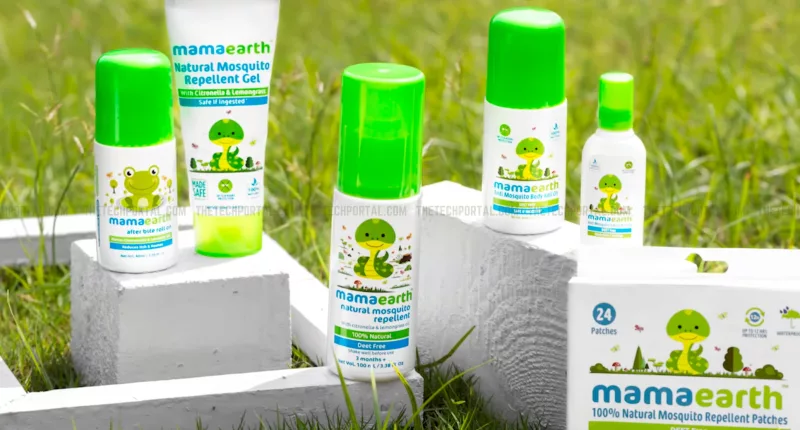In what would surely go down as a landmark moment for India’s nascent but fast-growing D2C startup sector, Honasa Consumer Limited, parent of popular child-care D2C brand Mamaearth, made its debut on public markets today. The shares listed at a 2% premium, though they are now trading at pretty much their listing price of ₹330 apiece, erasing all morning anticipatory gains.
At its current price, the company is seeing a valuation of nearly $1.2Bn, though one can expect further sliding in share price considering the massive gap in buy vs sell orders. Nevertheless, the moment was being watched over by several of India’s top unicorns as a slew of them prepare for a public listing amid private funding crunch and investor pressures to return profits. Mamaearth has also become India’s youngest unicorn to have gone for a successful public market listing.
In terms of pure financial performance, the shares aren’t really up to a blockbuster opening. According to a CNBC-TV18 report, a day before listing, shares of Mamaearth were commanding a premium of ₹26 per share in the grey market, signalling a decent landing on Dalal Street with a listing pop of 8%. However, much of that premium has since erased upon listing, with shares continuing trade flat, around the list price of ₹330.
Mamaearth reported revenues of approximately $170 million in financial year 2023, with the 56% of that coming in via online channels. The company does not own any of the manufacturing or IP and is dependent on 3rd party vendors for the same. It does maintain a healthy gross margin of 70%, alongside an adjusted EBITDA margin of 3%. Offline sales now represent 36% of the total revenue, marking an increase for the said financial period.
The husband-wife founder duo of Varun Alagh and Ghazal Alagh, along with investors Kunal Bahl, Shilpa Shetty, and Rishabh Mariwala, sold part of their stakes through the offer for sale. In particular, Alagh sold a total of 3,186,300 shares during the IPO. Investors have the opportunity to bid for a minimum of 46 shares in one lot, with multiples thereafter. The offering reserves about 75% of shares for Qualified Institutional Buyers (QIBs), 15% for Non-Institutional Investors (NIIs), and the remaining 10% for Retail Investors. Employees can get a discount of ₹30 per equity share alongside a reservation of equity shares worth up to ₹10 crore.
The funds generated through the IPO are expected to be allocated for various purposes. These include advertising expenses, capital expenditure to establish new exclusive brand outlets (EBOs), investments in subsidiary BBlunt for the expansion of new salons, and to cater to general corporate requirements. Additionally, a portion of the funds may be directed towards unidentified inorganic acquisitions.
The D2C startup had earlier hoped for a $3Bn public market valuation, only to cut it short to less than half, as market sentiments worsened and focus on revenues and profitability of startups increase significantly post pandemic.
